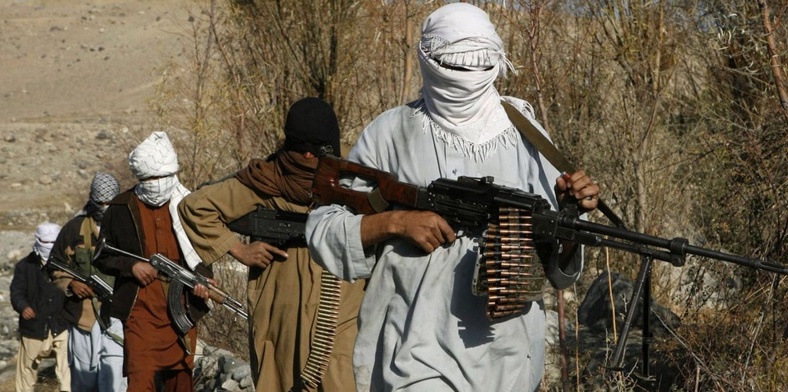Since the takeover of Afghanistan by a coalition of jihadists controlled by Pakistan, the one neighbouring state to vocally object is Tajikistan, which has extended support to the remaining anti-Taliban resistance. This is a reprise of Tajikistan’s role in the 1990s, when it provided a rear base to the United Islamic Front (UIF) or “Northern Alliance”, and was the gateway for the states supporting the UIF, notably Pakistan’s great rival India.
Tajikistan is where the transnational character of Pakistan’s jihadist network in Afghanistan becomes most obvious: in the 1990s, the Islamist revolutionary tide in Afghanistan swept over Tajikistan’s border, triggering a half-decade-long struggle. Even after a tentative settlement in December 1996, the Taliban directly intervened to try to extend the war.
The Tajik civil war re-established Russian dominance in the country. Once Moscow had secured Tajikistan, it moved to push back the jihadists in Afghanistan, supporting the UIF, led by Ahmad Shah Masud, who was an ethnic Tajik, like much of UIF’s senior leadership.
Iran also worked through Tajikistan to support the UIF, as did India, to counter Pakistan’s use of Afghanistan for “strategic depth” in its ideological war against them. When Masud was killed two days before 9/11, he died in an Indian field hospital in Tajikistan.
Tajikistan now faces refugees, jihadist infiltrators, and drugs flowing in from Afghanistan as well as foreign fighters trying to go the other way. Tajikistan appears to be harbouring the current Afghan resistance leaders and earlier this year it granted a posthumous state honour to Ahmad Shah Masud. Given that an Afghan resistance movement needs external support and bases in a state with a land border for supply and retreat, Tajikistan fits the bill.
Whether Tajikistan is merely looking to polish its image in the West — and perhaps gain access to aid money — or is actually willing to risk hosting an active Afghan resistance, is more of an open question, though if Russia insists on it then Dushanbe cannot refuse. This leads us to the real question: does Russia — and Iran and India — want to contest Afghanistan with the concatenation of jihadists that answer to Pakistan?
Despite recent events being an almost exact repeat of the 1990s, there are some key differences. The first is that Pakistan’s jihadists have conquered Afghanistan more completely this time. Second, Russia and Iran have established ties with the Taliban. This is not entirely new. As Oved Lobel lays out in a recent report, Iran and Pakistan utilised cross-cutting networks in Afghanistan last time, and the Russians have long been “willing to work with anyone who might extend their influence”.
Still, the circumstances after the Taliban-Qaeda takeover potentially change priorities in Tehran and particularly Moscow, the key decider on the “Tajik option” for resistance. Previously, the Russians and Iranians were looking for any means to drive NATO out of Afghanistan. Now, counterbalancing Pakistan and keeping (Sunni) radicalism in check might come to the fore in their strategic thinking.
India undoubtedly has the will for a “Northern Alliance 2.0” operation but their capacity to do so is more complicated. Putting aside questions of Indian assets to wage a proxy war, India’s diplomatic facilities in Afghanistan have been shuttered and the occupation of the country by Pakistan’s jihadists means India’s access to Afghanistan is dependent on the Russian decision over Tajikistan.
However this works out, the West is largely a bystander to events. The U.S.’s post-withdrawal “over-the-horizon” involvement in Afghanistan is clearly unworkable, and Russia and Iran will never permit U.S. involvement in an operations room with them in Tajikistan. The French efforts to find some footing in Central Asia alongside Russia are likely to end the same way as the attempt in West Africa. So for now, all we can do is stand and watch as events unfold.










Join the discussion
Join like minded readers that support our journalism by becoming a paid subscriber
To join the discussion in the comments, become a paid subscriber.
Join like minded readers that support our journalism, read unlimited articles and enjoy other subscriber-only benefits.
Subscribe